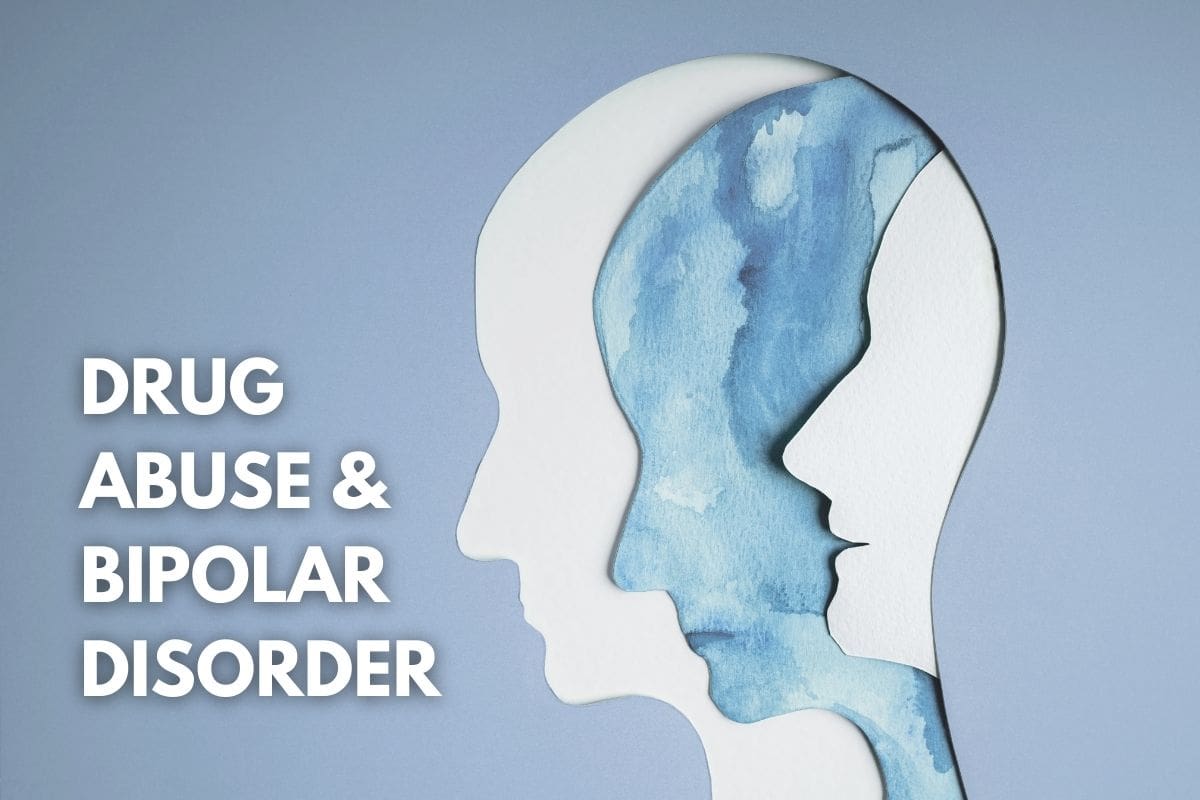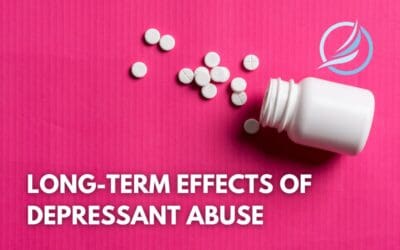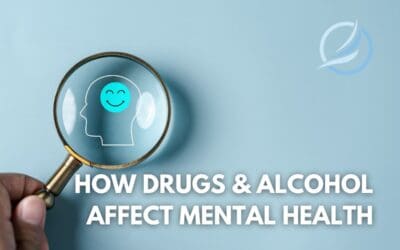Bipolar disorder is a common mental health disorder affecting approximately 5.7 million adults in the United States. Numerous studies have reported a connection between alcohol and drug abuse and bipolar disorder. Bipolar disorder is characterized by extreme mood and energy fluctuations that produce psychological instability. Both bipolar and substance use disorders can have detrimental consequences on someone’s health and well-being. However, drug abuse causes bipolar disorder and involves looking at different factors.
What Causes Bipolar Disorder?
The exact cause of bipolar disorder remains unknown. But several factors are involved, including:
- Genetics: People with a first-degree relative with the condition are more likely to develop bipolar disorder. However, researchers have yet to find the specific genes that trigger this disorder.
- Biological factors: People with bipolar disorder tend to have physical changes in their brain’s structure. The significance of these changes is still uncertain but does shed light on the causes of this disorder.
Some factors may increase the risk of developing bipolar disorder or trigger the first psychotic episode, such as:
- Excessive drug or alcohol abuse
- Periods of high stress or traumatic experiences
- Having an immediate family member with bipolar disorder
Bipolar Disorder and Addiction: What’s the Connection
Compared to the general population, people with bipolar disorder are more likely to be addicted to drugs and alcohol. In some studies, about 60% of participants with bipolar disorder had some history of substance abuse. Unfortunately, it’s not known why bipolar disorder makes people more likely to abuse drugs.
Frequent drug and alcohol use can cause physical changes in the brain. The most apparent change happens to the brain’s reward system, making using drugs more pleasurable and triggering drug-seeking behavior. People with bipolar disorder may experience manic or depressive episodes. When they are in a manic phase, they may abuse stimulants like cocaine to extend this high-energy state. Or, when they’re in a depressive state, they may reach for sedatives or depressants to calm feelings of hopelessness.
In some cases, it could be said that substance abuse caused bipolar disorder. However, substance abuse can trigger various mental health disorders, including anxiety, depression, and schizophrenia. Nonetheless, when talking about drug-induced bipolar disorder, it’s referring to someone who was previously healthy and developed a mental illness after abusing drugs.
How to Deal With a Bipolar Drug Addict
Unfortunately, bipolar disorder and drug addiction can push people into a vicious cycle. People with bipolar disorders may turn to drugs and alcohol to regulate their symptoms. Yet, substance abuse intensifies the symptoms of bipolar disorder and extends the episodes of psychological instability.
Treating co-occurring bipolar disorder and substance abuse can be challenging and requires intensive attention. The best way to treat co-occurring disorders is through an intensive dual diagnosis program that addresses both conditions simultaneously. It’s vital to seek rehab centers with staff trained in mental health care and substance abuse treatment.
This disorder can harm all aspects of someone’s life. It’s essential to provide them with support and guidance both professionally and personally to make a difference in treatment outcomes.
Treatment Options
Bipolar disorder and addiction are complex conditions requiring intensive treatment and a comprehensive approach. Most treatment plans will incorporate a combination of evidence-based therapies, including:
- Cognitive-Behavioral Therapy (CBT): A form of psychotherapy that addresses previously learned patterns and destructive behaviors that contribute to addiction.
- Trauma Therapy: Since a history of past trauma can increase the severity of the bipolar disorder, seeking trauma therapies can help patients manage unprocessed memories and fears.
- Medications: For many individuals, medication-assisted treatment (MAT) can be highly effective at controlling symptoms and stabilizing moods to promote better recovery. Medications can also help curb drug or alcohol cravings for long-lasting recovery.
- Motivational Interviewing (MI): A collaborative therapy approach helps patients achieve self-defined goals. This can help patients with bipolar disorders overcome hurdles about taking medication for their condition.
- Solution-Focused Therapy (SFT): A practical modality that helps patients set and achieve specific treatment goals. This form of treatment focuses on measurable therapy outcomes, assisting people in noticing their progress faster and better.
Finding Help for Dual Diagnosis
Anyone dealing with co-occurring addiction and bipolar disorder needs to seek professional help. These are complex and multifaceted conditions that affect all aspects of someone’s life. If left untreated, both illnesses can increase in severity. However, with a combination of behavioral therapies and medications, bipolar disorder and addiction can improve. Don’t hesitate to seek help and find the right path toward recovery.
Sources:
https://pubmed.ncbi.nlm.nih.gov/11356233/
https://www.ncbi.nlm.nih.gov/pmc/articles/PMC2094705/
https://store.samhsa.gov/sites/default/files/d7/priv/sma16-4960.pdf


































